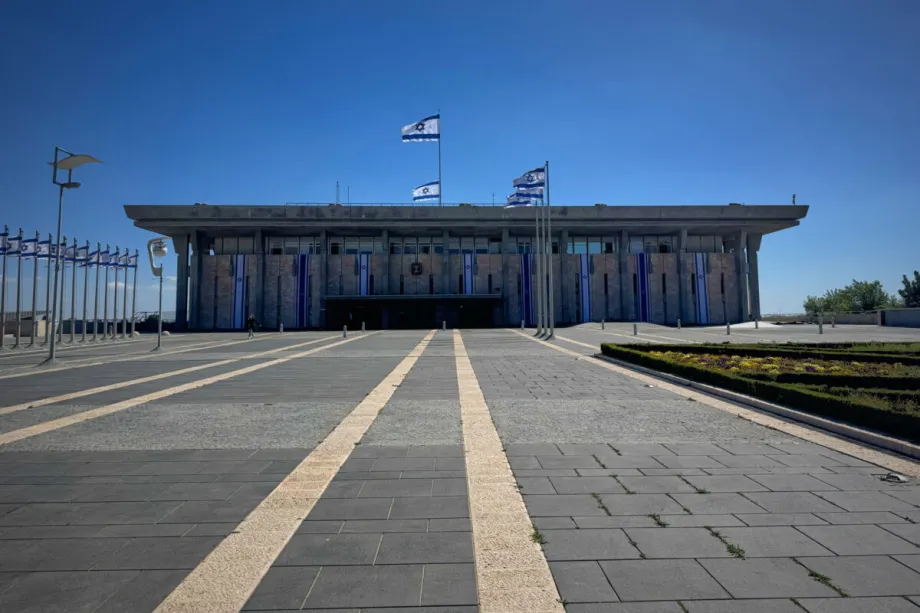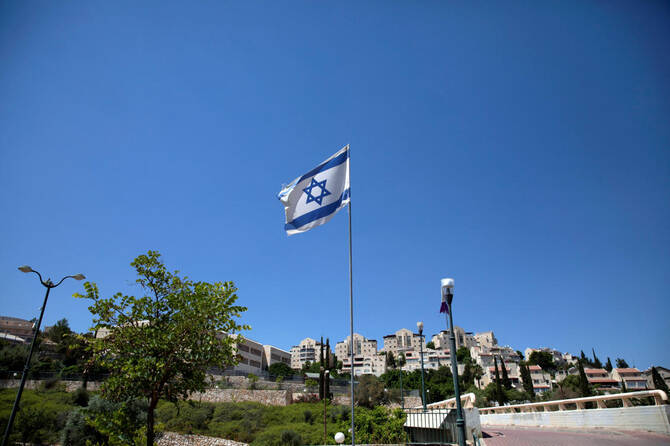The Gulf Cooperation Council (GCC) has issued a statement of the strongest possible condemnation following the Israeli Knesset’s preliminary approval of two highly controversial bills. These legislative proposals, which seek to impose Israeli sovereignty over the entire occupied West Bank and specifically the large settlement of Ma’ale Adumim, have been denounced by the regional bloc as a catastrophic threat to peace and a blatant violation of international law.
The move in the Israeli parliament, though preliminary, has triggered a diplomatic firestorm across the Middle East and beyond, immediately drawing the ire of the six-member Gulf Cooperation Council, which includes Saudi Arabia, the UAE, Bahrain, Kuwait, Oman, and Qatar. The formal response from the GCC serves as a powerful declaration that the Gulf states will not tolerate actions that permanently foreclose the possibility of an independent Palestinian state.
The core of the matter centers on the legal status of the West Bank, which has been under Israeli occupation since the 1967 Six-Day War. The international community, including the United Nations, considers Israeli settlements in this territory to be illegal and an obstacle to peace, a position starkly challenged by the Knesset’s advancing of these annexation bills.
A Blatant Violation: The GCC Condemns West Bank Bills
In a forceful statement released from Riyadh, GCC Secretary-General Jasem Mohamed Albudaiwi voiced the bloc’s collective outrage. His declaration pulled no punches, describing the Knesset’s actions as a “flagrant violation of international legitimacy resolutions and undermine[ing] the international community’s efforts to achieve a just and comprehensive peace.”
Secretary-General Albudaiwi emphasized that these settlement practices represent a “blatant encroachment on the historical rights of the Palestinian people” and stand in clear breach of international and UN laws. The statement underscored the GCC’s unwavering commitment to the Palestinian cause, specifically reiterating the bloc’s firm support for the Palestinian people’s legitimate right to establish their independent state on the borders of June 4, 1967, with East Jerusalem as its capital, in accordance with the Arab Peace Initiative and relevant international resolutions.
The official condemnation from the GCC, a body wielding immense financial and diplomatic influence, carries significant weight. It not only aligns with the consensus of the broader Arab and Islamic worlds but also injects a major new point of tension into the already fragile geopolitical environment. The region is already grappling with the fallout from the ongoing conflict in Gaza and the wider instability it has caused.
The Bills That Sparked the Crisis: Details of the Knesset Vote
The preliminary approval by the Knesset, which occurred by an extremely narrow margin, involved two specific legislative drafts:

- Full West Bank Sovereignty Bill: This bill, proposed by a far-right member of parliament, seeks to apply Israeli “sovereignty” over the entirety of the West Bank, an act widely viewed as tantamount to full annexation. It passed by a razor-thin 25-24 vote, despite the majority of Prime Minister Benjamin Netanyahu’s Likud party abstaining or boycotting the vote to avoid a diplomatic crisis.
- Ma’ale Adumim Annexation Bill: This second bill proposed the annexation of the large settlement city of Ma’ale Adumim, located just east of Jerusalem. Home to tens of thousands of Israeli residents, the settlement’s inclusion under Israeli law would be a major step in cementing Israel’s control over the crucial E1 area, a strategic land corridor that, if developed, would effectively cut the northern and southern parts of the West Bank in two, making the contiguous formation of a future Palestinian state virtually impossible.
Though the bills must pass three additional readings to become law, their initial success in the Knesset signals the growing political strength of the far-right factions in Israel, who are openly pushing for the end of the two-state solution. The fact that the vote was held publicly, and during a sensitive period of regional diplomacy, was seen by critics as a deliberate and provocative act.
International Backlash and the Geopolitical Threat
The GCC is not alone in its forceful response. The condemnation from Riyadh reflects a widespread international concern that this unilateral action is actively undermining all efforts toward stability and a lasting peace.
The US Position: A Rare Public Rebuke
In a particularly striking development, the Israeli Knesset’s vote drew a sharp and public rebuke from the United States—Israel’s most vital ally. US President Donald Trump, who has been heavily invested in recent regional ceasefire negotiations, was quoted as warning that Israel would lose “all support from the United States” if it were to proceed with a full annexation of the West Bank.
Furthermore, US Vice President JD Vance, who was visiting Israel at the time to shore up the fragile Gaza ceasefire, publicly criticized the Knesset vote. He described the move as a “very stupid political stunt” and an “insult,” emphasizing that the official US policy remains firmly against West Bank annexation. This rare public spat between senior US and Israeli officials highlights the gravity of the bills and the extent to which they threaten the delicate diplomatic architecture the US has been trying to build.
Arab States and the Abraham Accords
The outspoken nature of the GCC Condemns West Bank Bills statement is particularly significant because several GCC members—specifically the UAE and Bahrain—have normalized relations with Israel under the US-brokered Abraham Accords. The annexation move directly challenges the spirit of these accords, which were intended to foster regional stability and economic cooperation. The UAE, for example, had previously warned that annexation would constitute a “red line.” By joining the collective GCC condemnation, these states are signaling that diplomatic ties will not supersede their foundational commitment to the Palestinian cause.
Other regional players, including Qatar and Saudi Arabia (which does not have formal ties with Israel but is a key diplomatic player), also issued strong, independent condemnations, emphasizing that Israel’s unilateral expansionism violates Palestinian rights and undermines UN resolutions.
International Law and the End of the Two-State Solution

The crux of the diplomatic crisis lies in the relationship between Israel’s domestic legislative process and the established principles of international law. The West Bank is designated as an Occupied Palestinian Territory under international law.
- Geneva Conventions: The Fourth Geneva Convention, which governs belligerent occupation, prohibits an occupying power from transferring parts of its own civilian population into the territory it occupies—the very definition of the settlement enterprise. Annexation is therefore viewed as a grave violation.
- UN Resolutions: Numerous UN Security Council resolutions, most recently Resolution 2334 (2016), have reaffirmed that the establishment of Israeli settlements has “no legal validity” and constitutes a “flagrant violation” of international law.
- The International Court of Justice (ICJ): Just months prior to this Knesset vote, the ICJ delivered a landmark advisory opinion, which declared Israel’s occupation of Palestinian territory illegal and called for the evacuation of all settlements.
By moving to annex the territory, the Israeli Knesset is attempting to override decades of international consensus and binding legal precedents. If passed, the bills would not only violate international law but also effectively destroy the internationally accepted framework for peace—the two-state solution—which calls for an independent Palestine existing alongside Israel based on the 1967 borders. Annexation, particularly of areas like Ma’ale Adumim, makes a viable, contiguous Palestinian state impossible.
The Call for Global Action
In his conclusion, the GCC Secretary-General issued a powerful call to the international community, urging it to “fulfill its legal and political responsibilities by pressuring the occupation authorities to stop these dangerous, escalating measures.”
The GCC Condemns West Bank Bills statement is a deliberate geopolitical maneuver aimed at galvanizing global opposition. The Gulf states, through this action, are trying to force a coordinated international response that moves beyond mere rhetorical condemnation. The stakes are immense. At a time when the Middle East needs de-escalation, this move by the Knesset has dramatically ratcheted up tensions. The international community, particularly the permanent members of the UN Security Council, now face a critical choice: either allow an Israeli domestic political maneuver to unilaterally reshape the future of the region and destroy the prospect of peace, or heed the GCC’s call and exert the necessary diplomatic and economic pressure to halt what is widely viewed as an act of illegal land seizure. The future of the two-state solution hangs precariously in the balance.
Do Follow Gulf Magazine on Instagram
Also read: Saleeg: 7 Amazing Facts About Saudi’s Comfort Dish



